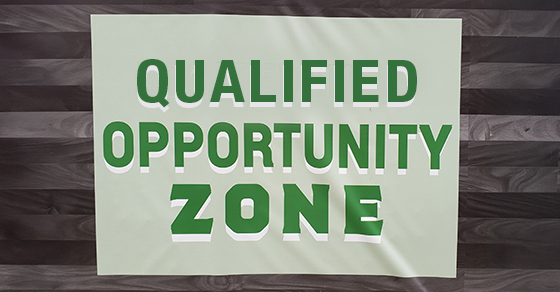Generally, as real estate development increases, so does construction work. To that end, contractors may want to start looking at qualified opportunity zones (QOZs) in their markets for project opportunities in the years ahead.
QOZs were originally established under the Tax Cuts and Jobs Act (TCJA) to attract investment in economically distressed areas. They do so by offering substantial tax incentives to those who invest through qualified opportunity funds (QOFs).
The recently enacted One, Big, Beautiful Bill Act (OBBBA) gave QOZs a big boost. Among other changes, the law made the entire QOZ/QOF program permanent and introduced new incentives for investors.
Delightful deferrals
QOFs enable investors who’ve realized capital gains on other assets to reinvest those proceeds in a QOF and defer tax on the related gains. Under the OBBBA, the deferral is no longer fixed through 2026 as it was previously under the TCJA. Rather, for new qualifying investments of gain in QOFs on or after January 1, 2027, investors can defer gains up to five years from the date of investment. This feature offers greater flexibility for post-2026 investments.
In addition to being able to defer gains, investors will enjoy:
- A 10% reduction in the deferred gain if the QOF investment is held for at least five years,
- Continued no tax on post-acquisition gains if the investment is held for 10 years or more, and
- No expiration deadline, as was the case under the TCJA; tax benefits will apply to eligible investments made after 2026, too.
Moreover, the TCJA required investing in QOZs by 2019 to realize the full 15% reduction before the originally scheduled 2026 sunset date. The OBBBA replaces this stipulation with a rolling, simplified benefit system based on holding period.
Qualification requirements
So, what exactly is a QOF? Essentially, it’s a fund designed to invest in QOZs that must hold at least 90% of its assets in “QOZ property.” To qualify as such, real estate or other tangible property must include:
- Direct acquisitions of “QOZ business property,” which is tangible property used in a trade or business within a QOZ, or
- Equity interests in QOZ businesses that primarily invest in QOZ business property and meet other criteria.
Additionally, eligible real estate or other tangible property must be bought after 2017 by a QOF or QOZ business and meet either an “original use” or “substantial improvement” requirement.
Under previously issued IRS guidance, which presumably remains applicable under the OBBBA, original use means the building was new or under construction when acquired. Vacant properties that hadn’t been in use for five years or more may also qualify.
If the original use test can’t be met, a property may still be eligible as a substantial improvement provided the QOF or QOZ business doubles the adjusted basis (excluding land) within 30 months of purchase.
Construction considerations
As mentioned, an increase in QOZ projects should create greater demand for construction services. Therefore, it may be a good idea to keep an eye out for these jobs as they come online in your market.
However, QOZ projects may be risky. This is particularly true for substantial improvement jobs, given the time pressure of the 30-month deadline. Property owners anxious to qualify for QOZ tax incentives may attempt to impose tight timelines to help ensure they meet the deadline.
Before signing a contract, assess whether project timelines are realistic and inspect the property carefully to identify potential issues that may delay the project or increase costs. Also, ensure the contract includes provisions that protect you in the event of delays beyond your control.
The law’s impact
Many of the new QOZ provisions take effect after December 31, 2026, though some may start earlier depending on IRS implementation timelines. Whatever the case may be, the OBBBA could spur construction activity in your area over the next several years by expanding QOZ-related tax benefits.
And the law doesn’t stop there. Its provisions may help your company through beefed-up depreciation tax breaks and the now-permanent qualified business income deduction. We can help you evaluate whether QOZ projects make financial sense and further explain the OBBBA’s impact.
© 2025
